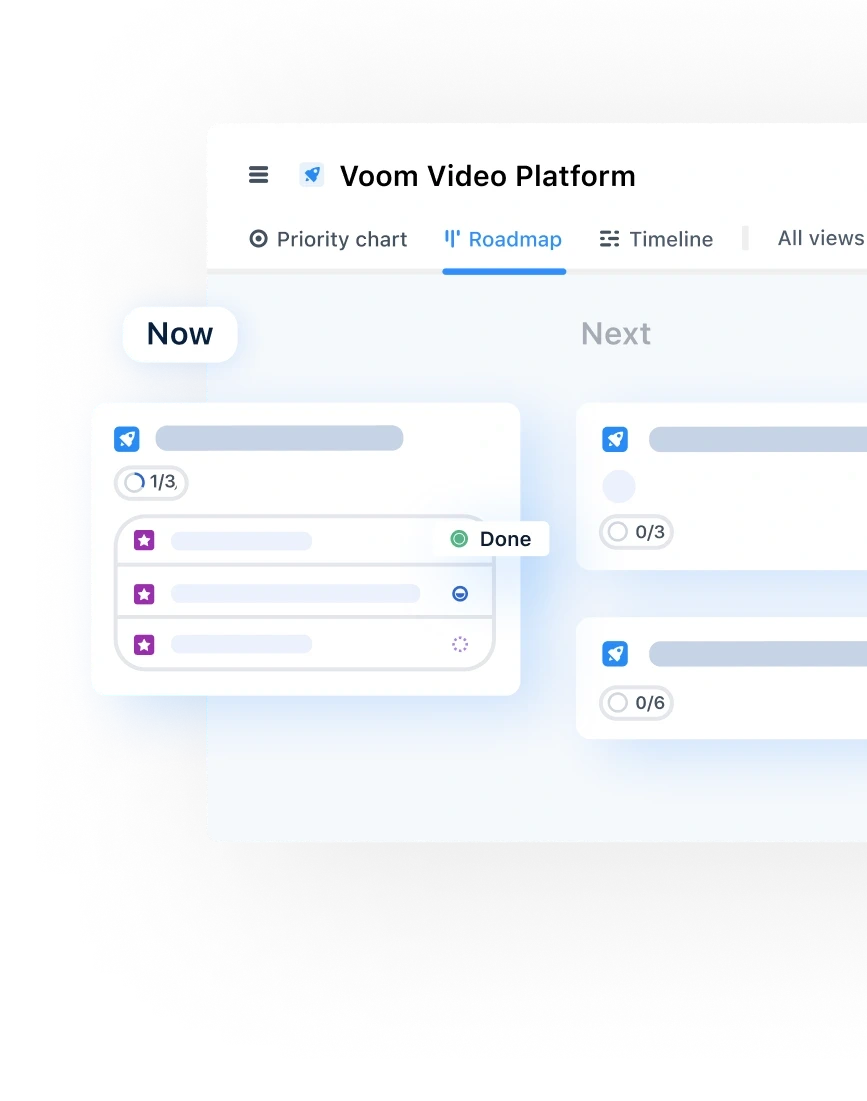"AI should be regarded as a co-pilot, not an auto-pilot." This was the general sentiment expressed by our guests at the roundtable, "How AI is Transforming the Way PMs Work".
Our very own Product Marketing Manager Johannes Schneider moderated the discussion between Andrea Saez, Head of Product Marketing at Mindstone, Jason Knight, founder of One Knight Consulting, and Lisa Zane, founder of Conscious Product Development. They all believed that AI is an augmented version of the brain that can help with research, idea generation, and storytelling, but there was skepticism about the dangers of overreliance.
Jason championed the way ChatGPT and other AI tools for product managers proved helpful, especially for non-native English-speaking PMs, as it helped them overcome the language barrier and show their product skills.
These tools also help PMs with difficult tasks like prioritization frameworks and code development according to Jason.
Andrea posed some ethical questions about the biases embedded in these tools, and how over-relying on them can affect communication skills, which are connected to writing abilities.
AI and decision making
The group discussed the possible implications of using tools like ChatGPT for product decisions. Jason stated it could be dangerous to depend on AI for major decisions that can have a massive impact. Andrea stressed again the point of overreliance, she is afraid people will rely on these tools for making decisions that lack empathy and won't think for themselves anymore.
Lisa was concerned about bias, and how millions of people who use AI, may rely on decisions and information with these biases embedded into them, without anyone questioning it. They all agreed AI can't replace human empathy.
Is AI more dangerous than social media?
Johannes wondered whether AI data and information were more dangerous than the ones on social media, Jason expressed that AI produces impressive results that seem almost alive, though it's just a machine. Lisa on the other hand was shocked by the speed AI was being adopted by people, much faster than social media. "People often take responses at face value without thinking critically" she added.
The group also pointed to the data from a recent poll that showed that 42% of people haven't implemented AI, while 31% have implemented it and 27% plan to.
The role of empathy
"AI doesn't have empathy," Andrea said, she believes that empathy is a crucial skill for success in product management. While it can be mimicked without actually feeling it, like in the case of sociopaths, It's a quality intrinsic to humans.
Jason argues that the empathy problem proves that AI can be used as a tool in product management only in partnership with human input and careful human review of the output, thus treating it like a co-pilot. Lisa suggested that PMs should keep asking AI important and complex questions so that they can see its limitations.
Practical implications of AI
When asked whether they use AI tools in their product management processes, the speakers shared some ways they do. For example, Andrea said that AI tools like ChatGPT proved helpful for summarization, but not really effective yet in generating content.
Jason said that he used it to generate educational material for a mentoring startup and provide user feedback insights. The group suggested using AI as an assistant, for things like data analysis and trend prediction, while being aware of its limitations, biases, and gaps in the technology.
The verdict
AI can be useful, but we must practice caution and awareness when using it. Lisa suggests that product managers train to be skilled in asking AI questions and phrasing prompts. AI can help product managers improve their skills if they use it wisely.
AI can be useful for those who struggle with writing, like non-native speakers or people with dyslexia, but it's not a replacement for human interaction, it's a tool to support the communication process.
The group agreed that AI can be used in product management for tasks like anticipating objections to an idea or gathering ideas to help the team move forward, but it all needs good training and foundation in those who use it.
Product managers need to be mindful of the potential biases and implement critical thinking in evaluating AI-generated content and answers in terms of accuracy and effectiveness. This way, AI tools can support communication, brainstorming processes, and prediction efforts but not replace product managers' empathy and critical thinking skills.
Our speakers

More events

Webinar
Rec. Feb 18th 2026Behind the build: Teresa Torres’ first AI product

Webinar
Rec. Oct 21st 2025Can you build great products without great culture - with Lucy Field, VP of Product at Zendesk
Experience the new way of doing product management

Experience the new way of doing product management








